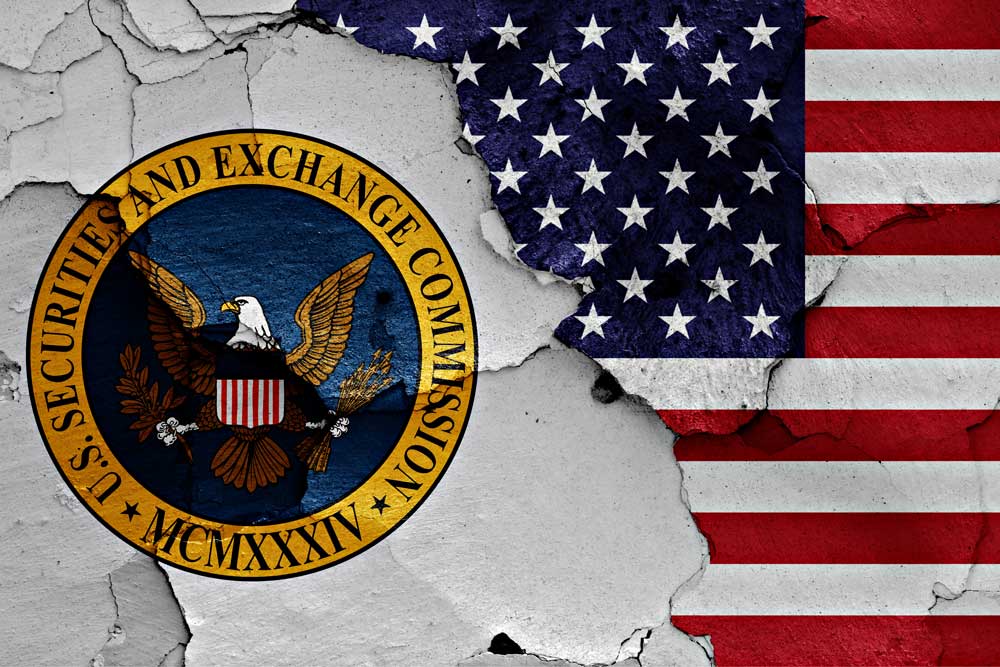The cryptocurrency industry has grown exponentially over the past decade, but with growth comes regulatory scrutiny. The U.S. Securities and Exchange Commission (SEC) has emerged as a key player in shaping the future of crypto through a series of high-profile legal battles. These cases have far-reaching implications for investors, developers, and the industry as a whole. In this article, we’ll explore the most significant SEC vs. crypto legal battles, their outcomes, and what they mean for the future of blockchain technology and digital assets.
In This Article
- Introduction to the SEC’s Role in Crypto Regulation
- Key Legal Battles: A Timeline
- SEC vs. Ripple (XRP)
- SEC vs. Coinbase
- SEC vs. Binance
- SEC vs. Terraform Labs
- Implications for the Crypto Industry
- Impact on Exchanges and Wallets
- Regulatory Clarity vs. Uncertainty
- Investor Protection and Market Confidence
- What’s Next for Crypto Regulation?
- FAQs
- Conclusion
Introduction to the SEC’s Role in Crypto Regulation
The SEC is a U.S. government agency responsible for protecting investors, maintaining fair markets, and facilitating capital formation. In the crypto space, the SEC has taken a proactive stance, arguing that many digital assets qualify as securities under existing laws. This classification subjects them to strict regulatory requirements, including registration and disclosure obligations.
However, the crypto industry often pushes back, claiming that existing regulations are outdated and ill-suited for blockchain technology. This tension has led to several high-stakes legal battles that could define the future of cryptocurrency.
Key Legal Battles: A Timeline
1. SEC vs. Ripple (XRP)
Overview:
The SEC filed a lawsuit against Ripple Labs in December 2020, alleging that the company raised $1.3 billion through the sale of XRP tokens, which the SEC classified as unregistered securities.
Key Arguments:
- The SEC argued that XRP met the criteria of the Howey Test, a legal framework used to determine whether an asset is a security.
- Ripple countered that XRP is a currency, not a security, and that the SEC failed to provide fair notice of its classification.
Outcome:
In July 2023, a federal judge ruled that XRP sales to retail investors did not constitute securities transactions, but institutional sales did. This partial victory for Ripple has been hailed as a landmark decision for the crypto industry.
Implications:
The ruling provided some clarity on how cryptocurrencies may be classified, but it also highlighted the need for clearer regulatory guidelines.
2. SEC vs. Coinbase
Overview:
In June 2023, the SEC sued Coinbase, one of the largest cryptocurrency exchanges, for operating as an unregistered securities exchange.
Key Arguments:
- The SEC claimed that Coinbase listed several tokens that qualified as securities without proper registration.
- Coinbase argued that the SEC’s enforcement actions were arbitrary and that the agency had not provided clear rules for compliance.
Outcome:
The case is ongoing, but it has sparked a broader debate about the SEC’s approach to regulation and the need for legislative clarity.
Implications:
A ruling against Coinbase could force major exchanges to delist certain tokens or face significant penalties, potentially disrupting the market.
3. SEC vs. Binance
Overview:
The SEC filed a lawsuit against Binance, the world’s largest cryptocurrency exchange, in June 2023, alleging a range of violations, including operating as an unregistered securities exchange and commingling customer funds.
Key Arguments:
- The SEC accused Binance of offering unregistered securities and failing to protect U.S. investors.
- Binance denied the allegations and vowed to vigorously defend itself in court.
Outcome:
The case is still in its early stages, but it has already had a significant impact on Binance’s operations and reputation.
Implications:
A ruling against Binance could set a precedent for how global exchanges are regulated in the U.S., potentially leading to stricter oversight.
4. SEC vs. Terraform Labs
Overview:
The SEC sued Terraform Labs and its founder, Do Kwon, in February 2023, following the collapse of the Terra ecosystem, which wiped out billions of dollars in investor funds.
Key Arguments:
- The SEC alleged that Terraform Labs offered unregistered securities and misled investors about the stability of its stablecoin, UST.
- Terraform Labs argued that its tokens were not securities and that the SEC’s case was based on flawed assumptions.
Outcome:
The case is ongoing, but it has already highlighted the risks associated with algorithmic stablecoins and the need for greater transparency in the crypto market.
Implications:
A ruling against Terraform Labs could lead to stricter regulations for stablecoins and other complex financial instruments in the crypto space.

Implications for the Crypto Industry
Impact on Exchanges and Wallets
The SEC’s legal battles have significant implications for cryptocurrency exchanges and wallets. Exchanges may need to reevaluate their token listings and compliance strategies, while wallet providers could face increased scrutiny over their security practices. For more information on choosing the right exchange or wallet, check out our guides on the Best Cryptocurrency Exchanges and Best Cryptocurrency Wallets.
Regulatory Clarity vs. Uncertainty
While some cases have provided clarity, others have added to the regulatory uncertainty surrounding crypto. This ambiguity can stifle innovation and deter institutional investors from entering the market.
Investor Protection and Market Confidence
The SEC’s actions are ultimately aimed at protecting investors and maintaining market integrity. However, overly aggressive enforcement could undermine confidence in the crypto industry and drive innovation offshore.
What’s Next for Crypto Regulation?
The outcome of these legal battles will likely shape the future of crypto regulation in the U.S. and beyond. Key developments to watch include:
- The introduction of new legislation to provide clearer guidelines for the industry.
- Increased collaboration between regulators and industry stakeholders.
- The potential for a global regulatory framework to address the borderless nature of crypto.
For tools and resources to navigate this evolving landscape, explore our guide on Essential Crypto Tools.
FAQs
1. What is the SEC’s role in crypto regulation?
The SEC is responsible for enforcing securities laws in the U.S. In the crypto space, it focuses on ensuring that digital assets comply with these laws, particularly those classified as securities.
2. Why is the SEC suing crypto companies?
The SEC is suing crypto companies for alleged violations of securities laws, including offering unregistered securities and operating unregistered exchanges.
3. How do SEC lawsuits affect crypto investors?
SEC lawsuits can create market uncertainty and impact token prices. However, they also aim to protect investors by promoting transparency and accountability.
4. What is the Howey Test?
The Howey Test is a legal framework used to determine whether an asset qualifies as a security. It considers factors such as investment of money, expectation of profits, and reliance on the efforts of others.
5. Will the SEC’s actions kill crypto innovation?
While the SEC’s actions may create short-term challenges, they could also lead to a more regulated and mature market that fosters long-term innovation and growth.
Conclusion
The SEC’s legal battles with the crypto industry are shaping the future of digital assets and blockchain technology. While these cases have created uncertainty, they also highlight the need for clearer regulations and greater collaboration between regulators and industry stakeholders.
As the crypto landscape continues to evolve, staying informed and prepared is crucial. Explore our resources on cryptocurrency exchanges, wallets, and essential tools to navigate this dynamic industry with confidence.



